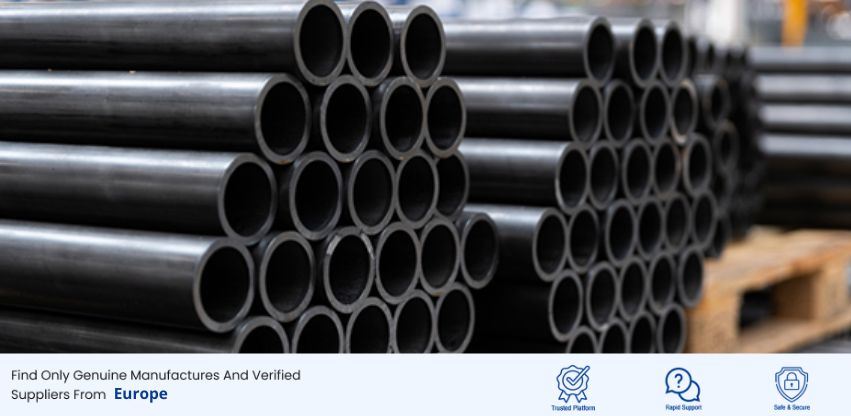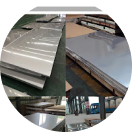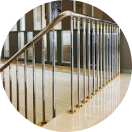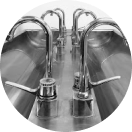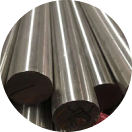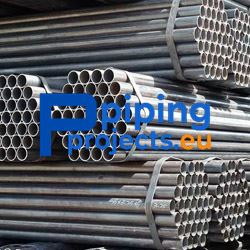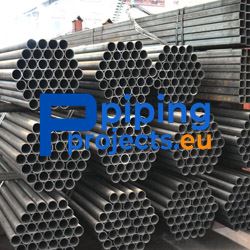Mild Steel Pipe Manufacturers, Suppliers & Exporters in Europe - PipingProjects.eu
PipingProjects.eu is one of the leading Mild Steel Pipe Manufacturer in Europe. Mild Steel Pipes are metal tubes primarily composed of iron and other elements like manganese and aluminum. Renowned for their robustness and durability, Mild Steel Pipes outperform conventional iron pipes in strength and longevity. As the trusted Mild Steel Pipe Supplier in Europe, we take pride in delivering top-quality products that meet stringent industry standards, ensuring reliability and durability for various applications.
What are Mild Steel Pipe?
Mild Steel Pipes are metallic tubes primarily composed of iron, with small amounts of carbon and other alloying elements such as manganese and silicon. Known for their malleability, durability, and versatility, Mild Steel Pipes are widely used in various industrial and construction applications. These pipes exhibit a lower carbon content compared to other steel varieties, making them suitable for welding and forming without compromising their structural integrity. Mild Steel Pipes are commonly employed in water and gas supply systems, structural frameworks, automotive components, and general fabrication projects due to their cost-effectiveness and ease of manipulation.
Top leading Manufacturing Companies
What distinguishes Mild Steel from other steel types in terms of composition?
Mild Steel distinguishes itself from other steel types due to its relatively low carbon content, typically ranging from 0.05% to 0.25%. This lower carbon composition contributes to increased malleability and ductility, making mild steel highly adaptable for various fabrication processes. Despite not possessing the extreme strength of some high-carbon steel counterparts, the versatility and cost-effectiveness of mild steel make it a favored material in construction, manufacturing, and general fabrication.
In addition to its compositional differences, mild steel often features additional elements like manganese and silicon, further influencing its properties. These alloys enhance specific characteristics, ensuring that mild steel remains a versatile and widely utilized material in a myriad of industrial applications.
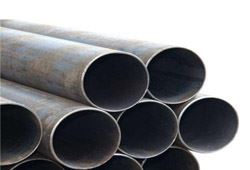
Mild Steel Pipe
Mild Steel Pipe - Specifications
- Product : Mild Steel Pipe
- Size : 1/8″NB TO 48″NB IN
- Schedule : SCH20, SCH30, SCH40, STD, SCH80, XS, SCH60, SCH80, SCH120, SCH140, SCH160, XXS
- Forms : Seamless / ERW / Welded / Fabricated / LSAW Pipes
- Standards : JIS, AISI, ASME, ASTM, AMS, GB, DIN, EN, GOST
- Method : Hot Rolled & Cold Rolled

Trusted
Supplier

Genuine
Product

Easy
purchase
What is the difference between Seamless and Welded Mild Steel Pipes?
- Seamless and Welded Mild Steel Pipes differ fundamentally in their manufacturing processes and structural characteristics. Seamless Pipes are crafted from a single continuous piece of steel, devoid of joints or seams, achieved by heating a solid steel billet and then piercing it to form a hollow tube. This seamless construction enhances uniformity, strength, and the ability to withstand high pressures, making them ideal for applications requiring robust performance.
- On the other hand, Welded Mild Steel Pipes are created by joining multiple sections of steel through welding processes like high-frequency electrical currents or the use of electrodes. While Welded Pipes are often more cost-effective, the presence of seams can result in reduced strength and increased susceptibility to corrosion compared to seamless counterparts. The choice between seamless and welded Mild Steel Pipes depends on specific application requirements, with seamless pipes favored for high-pressure applications, while welded pipes find common use in less demanding situations where cost efficiency is a primary consideration.
Mild Steel Pipe Chemical Composition
Discover the precise chemical composition of Mild Steel Pipes, crucial for diverse applications, with insights from a trusted Mild Steel Pipe Supplier in Europe, ensuring adherence to quality standards and performance reliability.
Chemical Composition of Mild Steel Pipe
| Ni |
Al |
Cr |
Cu |
Fe |
| 0.65 max |
0.015 to 0.06 |
0.5 to 1.25 |
0.25 to 0.55 |
Balance |
| PHOSPHORUS |
CARBON |
MANGANESE |
SILICON |
SULPHUR |
| 0.07 to 0.15 |
0.15 max |
0.2 to 0.5 |
0.25 to 0.75 |
0.03 max |
Mild Steel Pipe Mechanical Properties
Explore the mechanical prowess of Mild Steel Pipes, including strength and ductility, provided by a reputable Mild Steel Pipe Manufacturer in Europe, ensuring top-tier quality for a range of industrial applications.
Mechanical Properties of Mild Steel Pipe
| Mechanical Properties |
VALUE |
| Hardness |
105 Vickers - HV |
| Tensile Strength |
485 N/mm² |
| Yield Strength |
345 N/mm² |
| Shear Strength |
- |
| Proof Stress 0.2% |
- |
| Elongation (in 200mm) |
20% minimum |
Best practices for preventing corrosion in Mild Steel Pipes?
As a trusted Mild Steel Pipe Manufacturer in Europe, these best practices contribute to the prevention of corrosion, ensuring the reliability and durability of Mild Steel Pipes in various industrial applications.
- Protective Coatings: Apply corrosion-resistant coatings, such as zinc coatings (galvanization) or epoxy paints, to create a barrier that shields Mild Steel Pipes from exposure to corrosive elements.
- Cathodic Protection: Implement cathodic protection systems, like sacrificial anodes or impressed current systems, to control corrosion by manipulating the electrochemical environment of the Mild Steel Pipes.
- Proper Ventilation: Ensure proper ventilation around Mild Steel Pipes, as stagnant air can promote moisture accumulation, contributing to corrosion. Adequate airflow helps maintain a dry environment.
- Regular Inspections: Conduct routine inspections to identify early signs of corrosion. Timely detection allows for proactive measures, preventing the progression of corrosion and minimizing potential damage.
- Avoiding Harsh Environments: When possible, design and install Mild Steel Pipes away from harsh environments where exposure to corrosive substances, such as chemicals or saltwater, is minimized.
- Cautious Material Selection: Opt for corrosion-resistant alloys or coatings when specifying Mild Steel Pipes for projects in environments prone to corrosion, ensuring the longevity of the pipes.
- Proper Drainage: Ensure effective drainage systems to prevent the accumulation of water around Mild Steel Pipes. Standing water can accelerate the corrosion process, particularly in humid or wet conditions.
Applications of Mild Steel Pipes in Europe?
Mild Steel Pipes find widespread applications across diverse industries due to their durability, strength, and versatility. As a top Mild Steel Pipe Manufacturer in Europe, we deliver reliable solutions for fluid transport, heat exchange, and more, meeting diverse industrial needs with quality assurance.
- Construction: Mild Steel Pipes find extensive use in Europe's construction sector, serving as essential components for structural frameworks, building supports, and pipelines for water and gas supply.
- Transportation Networks: In the transportation industry, Mild Steel Pipes are utilized for constructing bridges, barriers, and railings, contributing to the development and maintenance of reliable transportation networks.
- Oil & Gas Industry: Mild Steel Pipes play a vital role in the oil and gas sector, forming the backbone of pipelines for the transportation of petroleum products and natural gas across Europe.
- Water Supply & Drainage Systems: Municipalities in Europe rely on Mild Steel Pipes for water supply and drainage systems, providing durable and corrosion-resistant solutions for delivering clean water and managing wastewater.
- Agriculture: In agriculture, Mild Steel Pipes are used for irrigation systems, fencing, and other applications, supporting sustainable and efficient agricultural practices across Europe.
- Energy Sector: Mild Steel Pipes are employed in the energy sector for the construction of power plants, supporting the generation and distribution of electricity throughout Europe.
- Automotive Manufacturing: Mild Steel Pipes are used in the automotive industry for the fabrication of chassis, exhaust systems, and other components, contributing to the production of durable and reliable vehicles.
- Architectural & Decorative Applications: Mild Steel Pipes are utilized in architectural designs and decorative applications, contributing to the aesthetic appeal of structures and public spaces across Europe.
Advantages of using Mild Steel Pipes
- Mild Steel Pipes offer a multitude of advantages, making them a preferred choice in various industrial and construction applications. Firstly, their exceptional durability and strength contribute to their longevity, ensuring a reliable and resilient infrastructure.
- Mild Steel Pipes are also highly versatile, allowing for easy fabrication and customization to meet specific project requirements. Additionally, their cost-effectiveness and widespread availability make them an economical choice, promoting efficient construction and infrastructure development.
- Furthermore, mild steel's malleability enables it to withstand forming processes, making it adaptable to diverse shapes and sizes, further enhancing its applicability in construction projects. In summary, the advantages of using Mild Steel Pipes encompass durability, versatility, cost-effectiveness, and ease of fabrication, making them a cornerstone in construction and industrial applications.
Various Types of Mild Steel Pipe We Supply
PipingProjects.eu is a leading Mild Steel Pipe Supplier in Europe. We supply different types of Mild Steel Pipes to meet diverse industrial needs with superior quality and precision.
How to choose the right Mild Steel Pipes for High Temperature Applications?
- Choosing the right Mild Steel Pipes for high-temperature applications requires careful consideration of several key factors. Firstly, assess the intended operating temperature range and identify the specific requirements for the application. Mild Steel Pipes are generally suitable for moderate temperatures, but for elevated temperatures, it is essential to select pipes with the appropriate alloy composition and heat treatment to ensure optimal performance.
- Consider the method of manufacturing—whether seamless or welded—as this can impact the pipes' ability to withstand high temperatures. Seamless Mild Steel Pipes are often preferred for high-temperature applications due to their uniform structure and resistance to thermal stress. Welded pipes, while suitable for various applications, may have limitations in extreme heat conditions.
- Collaborating with experienced Mild Steel Pipe Manufacturers in Europe who can provide guidance on the specific grades, coatings, and thermal treatments that enhance the pipes' resilience to elevated temperatures. Additionally, ensure compliance with industry standards and regulations to guarantee the suitability of the chosen Mild Steel Pipes for the intended high-temperature environment.
Manufacturing Process of Mild Steel Pipes
Mild Steel Pipe is produced in seven steps. It manufactures a wide range of shapes, goods, and parts, ranging from Mild Steel Pipe and Coil.
- Step 1 : Raw Material Selection
To begin the process of creating alloy steel, raw materials such as iron ore and other elements including nickel, chromium, and molybdenum are carefully selected. The choice of alloying elements depends on the specific properties that the alloy steel is intended to possess.
- Step 2 : Smelting and Melting
Once the raw materials have been selected, they are smelted in a furnace to create a molten metal alloy. The composition of the alloy is closely monitored and controlled to achieve the desired grade of alloy steel.
- Step 3 : Forming
After the molten alloy steel has been produced, it is cast into different shapes and forms, depending on its intended use. The most common shapes include slabs, billets, blooms, or ingots.
- Step 4 : Primary & Secondary Steelmaking
The subsequent step is primary steelmaking, which can be accomplished through different methods such as the Basic Oxygen Furnace (BOF) or the Electric Arc Furnace (EAF). At this stage, impurities like carbon are eliminated to achieve the desired chemical composition.
- Step 5 : Casting
The molten alloy steel is then cast into semi-finished forms, which can take the shape of plates, sheets, bars, or other forms. Continuous casting or ingot casting methods are usually employed for this purpose.
- Step 6 : Hot Rolling
In the case of products like Mild Steel Pipes, the semi-finished castings are hot-rolled to achieve the desired thickness and shape. During this process, the thickness of the castings is reduced while improving their mechanical properties.
- Step 7 : Cold Rolling and Annealing
In the case of specific alloy steel products such as thin sheets and coils, cold rolling is employed to further reduce the thickness and enhance surface finish. To relieve stresses and enhance corrosion resistance, annealing is frequently performed.
